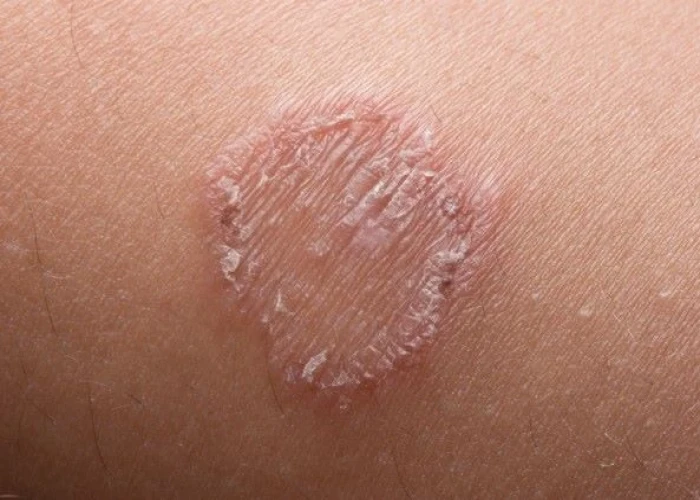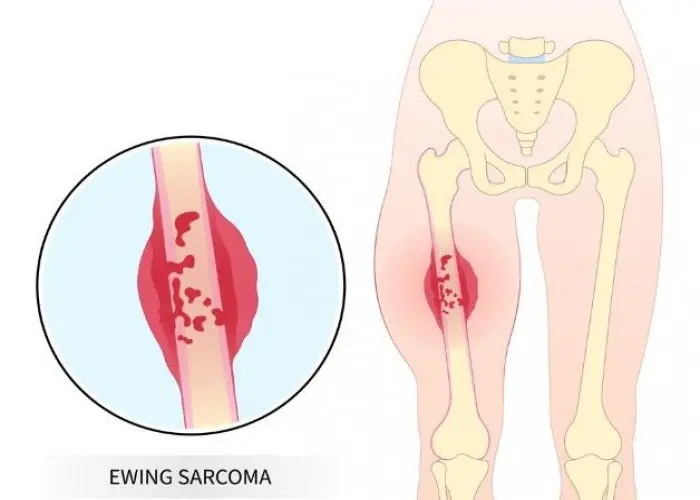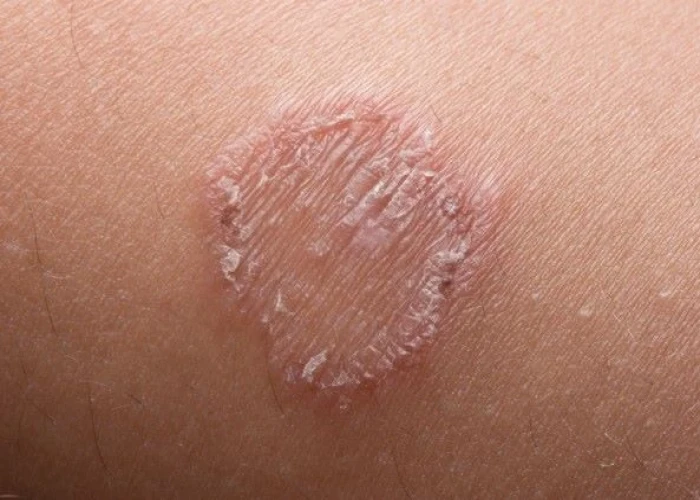 Welcome
Welcome
“May all be happy, may all be healed, may all be at peace and may no one ever suffer."
Ringworm (body)

Ringworm is a common skin infection caused by a type of fungus. It is called "ringworm" because the infection often appears as a circular rash with raised, red edges and clear centers, resembling a ring.
Body ringworm, also known as tinea corporis, can occur on any part of the body, but most commonly affects the arms, legs, and trunk. The infection is highly contagious and can be spread through direct contact with an infected person, animal, or object, such as towels or clothing.
Symptoms of body ringworm can include a circular or oval rash that may be itchy, scaly, or red. The rash may spread outward and may clear up in the center, giving it a ring-like appearance. In some cases, the rash may be accompanied by blisters or pustules.
Treatment for body ringworm typically involves the use of antifungal medication, such as topical creams or ointments or oral medications. In addition to medication, keeping the affected area clean and dry can help prevent the infection from spreading and promote healing.
Prevention of body ringworm involves avoiding contact with infected people or animals, washing hands regularly, and avoiding sharing personal items such as towels or clothing. If you suspect that you or someone else may have body ringworm, it is important to seek medical attention to prevent the spread of infection and to receive appropriate treatment.
Research Papers
Disease Signs and Symptoms
- Itching
- After itching, crusts come out
- A scaly ring-shaped area, typically on the buttocks, trunk, arms and legs
- Ringworm
Disease Causes
Ringworm (body)
Ringworm is a contagious fungal infection caused by common mold-like parasites that live on the cells in the outer layer of your skin. It can be spread in the following ways:
- Human to human. Ringworm often spreads by direct, skin-to-skin contact with an infected person.
- Animal to human. You can contract ringworm by touching an animal with ringworm. Ringworm can spread while petting or grooming dogs or cats. It's also fairly common in cows.
- Object to human. It's possible for ringworm to spread by contact with objects or surfaces that an infected person or animal has recently touched or rubbed against, such as clothing, towels, bedding and linens, combs, and brushes.
- Soil to human. In rare cases, ringworm can be spread to humans by contact with infected soil. Infection would most likely occur only from prolonged contact with highly infected soil.
Disease Prevents
Ringworm (body)
Ringworm is difficult to prevent. The fungus that causes it is common, and the condition is contagious even before symptoms appear. Take these steps to reduce your risk of ringworm:
- Educate yourself and others. Be aware of the risk of ringworm from infected people or pets. Tell your children about ringworm, what to watch for and how to avoid infection.
- Keep clean. Wash your hands often. Keep shared areas clean, especially in schools, child care centers, gyms and locker rooms. If you participate in contact sports, shower right after practice or a match and keep your uniform and gear clean.
- Stay cool and dry. Don't wear thick clothing for long periods of time in warm, humid weather. Avoid excessive sweating.
- Avoid infected animals. The infection often looks like a patch of skin where fur is missing. If you have pets or other animals, ask your veterinarian to check them for ringworm.
- Don't share personal items. Don't let others use your clothing, towels, hairbrushes, sports gear or other personal items. And don't borrow such things.
Disease Treatments
If over-the-counter treatments don't work, you may need prescription-strength antifungal medications — such as a lotion, cream or ointment that you apply to the affected skin. If your infection is particularly severe or extensive, your doctor might prescribe antifungal pills.
Disease Diagnoses
Disease Allopathic Generics
-
Griseofulvin [Microsize]
Medicines containing griseofulvin for ringworm anywhere on the body.
1 pill at night after meal for 4 weeks. Tinea capitis and tinea anguium require 5-9 months of treatment.
-
Fluconazole
Pregnant women are prohibited.
-
Chlorpheniramine Maleate
Medicines containing chlorpheniramine maleate should be given.
1/2 teaspoon or 1 pill 3 times a day.
-
Clotrimazole (Topical)
Ointment can be used for ringworm, fungal infections or eczema.
How much cream should be applied 2/3 times a day.
-
Miconazole Nitrate (Topical)
Ointment can be used for ringworm, fungal infections or eczema.
How much cream should be applied 2/3 times a day.
Disease Ayurvedic Generics
Disease Homeopathic Generics
-
Acid nitricum
30
-
Petroleum
30
-
Bacillinum
30, 200
-
Juglans cinerea
6, 30
-
Sepia
1X, 200
-
Graphites
30, 200
-
Phosphorus
6, 30
-
Staphysagria
30, 200
-
Tellurium
30
Disease yoga
Ringworm (body) and Learn More about Diseases

Diabetic ketoacidosis (DKA)

Ewing sarcoma

Preterm labor

Bronchiolitis

Polycystic ovary syndrome (PCOS)

Lewy body dementia

Sick sinus syndrome

Placental abruption
body ringworm, শরীরের দাদ
To be happy, beautiful, healthy, wealthy, hale and long-lived stay with DM3S.
